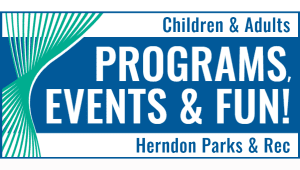By Dr. Michael Oberschneider, Ashburn Psychological & Psychiatric Services
Dear Dr. Mike,
My 8-year-old son was recently diagnosed with ADHD. After an extensive questionnaire and the urging of his teacher, the doctor recommended we medicate him. However, I am struggling with what to do. I am told by other parents the medication is effective — but I can’t help thinking this is a fad diagnosis, as our society tends to medicate everything.
How do I know if he truly has ADHD, or is he just a “spirited” boy?
Dear Concerned Parent,
These are excellent questions that are often asked of pediatricians, family physicians, child psychiatrists, and psychologists by parents. Professionals typically rely on the DSM-5 or the ICD-10 for diagnosing, and children with ADHD generally experience difficulty in three areas: lack of focus/inattention, impulsivity, and hyperactivity. For a child to meet the criteria for ADHD, per the DSM-5 or ICD-10, significant attentional problems must be identifiable across the important areas of the child’s life — e.g., school and home. Typically, ADHD is diagnosed in children by age 8.
You Might Also Like: Parenting a Child With ADHD
For your doctor to recommend medication, he/she must’ve determined that your son met enough of the symptoms within the guidelines for ADHD. Based on what you’ve written, though, it appears that your doctor diagnosed ADHD and prescribed medication to treat it, relying primarily on a parent questionnaire and teacher feedback. It does not appear that any standardized or objective testing was conducted to identify your son’s problems or to rule out other potential issues or conditions. Pediatricians are well-trained to accurately diagnose ADHD; however, ADHD testing can also be very helpful for an accurate diagnosis since children with ADHD have higher rates of mood, behavior, and learning problems. So, knowing what is causing what and to what degree with testing may be essential to helping your son, especially since you seem reluctant to accept the ADHD diagnosis or the medication he received from his doctor.
You have a couple of options at this point. You could start your son on the prescribed medication and see if he improves. If you are too unsure of the diagnosis and the prescribed medicines for your son, you could instead have him evaluated by a child psychologist. That evaluation would, again, accurately identify the areas in which your son is struggling, to what degree he is struggling, and whether or not he meets the criteria for ADHD. The testing would also serve as a roadmap of sorts for specific recommendations based on your son’s results. You could also begin a course of cognitive-behavior therapy and parent training/guidance to address your son’s attentional struggles. Therapy and parenting work would teach your son (and you as a parent) coping skills and strategies, and if successful, you may be able to bypass medication altogether.
To your point that ADHD is “a fad diagnosis” and that we over-medicate as a society, the research actually supports the opposite. In 1995, the National Institute of Mental Health did a large-scale study on childhood ADHD and found that only 1 in 8 children diagnosed with ADHD were receiving medication or therapy for the condition. The United States consumes approximately five times more Ritalin than anyplace else in the world; however, better diagnosis and more accessibility to services are believed to be the reasons for this. Whether you agree with medications for your son or not, there is a large body of research to support the efficacy of certain medicines for the treatment of ADD and ADHD. So if your son does meet the criteria for ADHD and his functioning warrants a medication regimen, he would most likely benefit.












